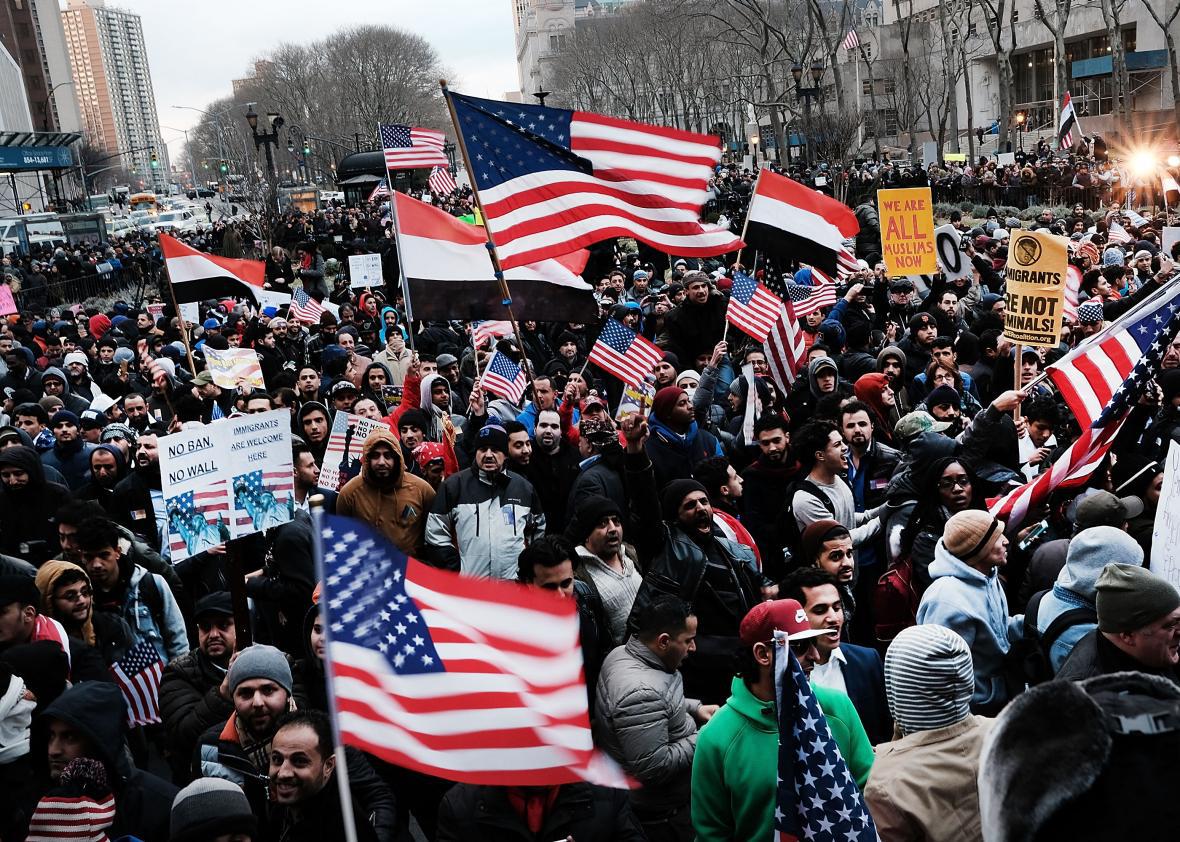An immigration lawyer has built a website that aims to help visa-holders seeking to travel to the U.S. from countries named in Donald Trump’s travel ban. The site, called “Track the Ban,” asks people who have tried—successfully or not—to buy tickets and board airplanes bound for the U.S. to anonymously fill out a questionnaire about which airlines they used and which airports they tried to fly out of. The creator of the site, Sarah Brunet, who has been helping travelers at LAX in Los Angeles since Saturday, said the goal of the site is to generate up-to-date lists of “green routes” that people from the seven countries affected by the ban can consult as they look for “a good route by which to go home.”
Trump’s ban is causing disorder at airports around the world, as airlines struggle to interpret the state of American border policy following last Friday’s executive order and the multiple court orders blocking Trump’s prohibitions since. As my colleague Jeremy Stahl reported Thursday, the U.S. Customs and Border Protection agency appears to be ignoring a court order issued by two district court judges in Massachusetts, which said that visa holders from the seven affected countries must be allowed entry into Boston’s Logan Airport and ordered Customs and Border Protection to notify airlines of that fact. Between that sweeping order and a similar one issued days later by a judge in California, it should be possible right now for people with valid visas to travel to the U.S. regardless of what country they’re from. (According to the Boston Globe, the Massachusetts court order will expire on Sunday.)
Instead, confusion reigns. On Thursday, representatives from Qatar Airways were refusing to acknowledge the relevant court orders, while Swiss Airlines was declining to seat a U.S.-bound visa holder from Iran. There were more than 200 U.S.-bound visa holders from Yemen who had been stranded in Djibouti. Meanwhile, officials from the State Department and the Justice Department can’t seem to agree about whether the number of people whose visas have been canceled in connection with the executive order is 100,000 or less than 60,000.
“Track the Ban,” which launched Friday and is scheduled to publish its first list of “green routes” before midnight, aims to be a resource for anyone navigating this mess. “We’re trying to be very practical,” said Brunet, who is working with a team of about 30 volunteers to process the questionnaires people are submitting. “We’re not trying to change the law—we’re just trying to make things work until this is figured out.”
Airlines that sell tickets to passengers who end up being turned away at the border must pay to fly them back to their country of origin, and are subject to fines up to $3,000. According to Brunet, this is why different airlines appear to be enacting different policies with regard to the travel ban: They all have their own legal teams making their own decisions about what kinds of passengers are too risky to board. Brunet noted that Track the Ban offers a packet for travelers containing a form that allows passengers to assume all financial liability in the event that their admission to the U.S. is denied. (There is no guarantee that airline representatives will accept the form.)
Brunet said she and her team are trying to screen every submitted questionnaire by looking for corroborating stories from other people and checking with the relevant airlines. “If we’re not able to check with the airline but we hear a lot of stories [about a particular route],” Brunet said, “we might just put an asterisk saying, ‘We weren’t able to check with the airline but based on these many reports, this is good to go.’
“The goal is really to get people in who should be lawfully admitted,” she said.
